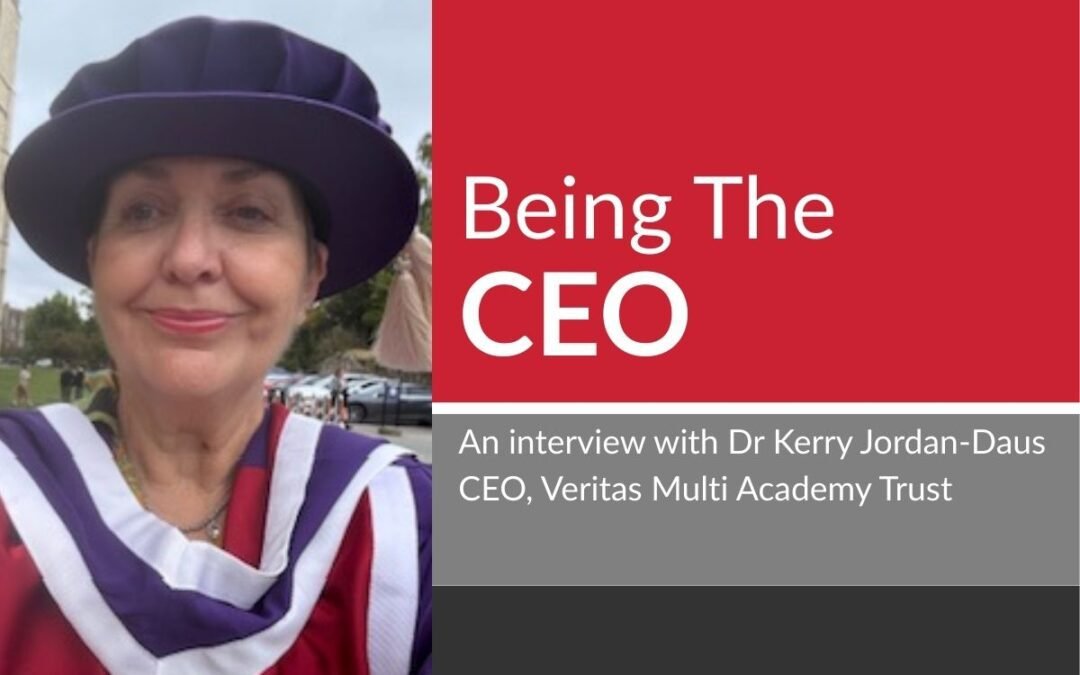Towards innovative & impactful partnership.
BLOG 1: Don’t forget the hearts and minds
BLOG 2: Embedding the vision: a culture of ‘shared accountability’ across groups of schools
BLOG 2: Embedding the vision: developing a culture of participation and accountability
We have previously discussed in our blog (‘Towards more academies: don’t forget the ‘hearts and minds’’) the vital importance of groups of schools making time to clarify their sense of collective purpose – namely, their organisational ‘why’. This is particularly important as school partnerships – not least multi-academy trusts (MATs) – experience a period of rapid growth and change. Without having a clear appreciation of why they intend to grow and the values they wish to work by, most organisations – including partnerships of schools – are ultimately destined to fail. They will lack a basis from which to inspire and motivate the necessary change amongst their key stakeholders and, indeed, for determining what they are ultimately trying to achieve.
The system currently presents an opportunity for MATs, teaching schools and others in the process of growth to be bold, ambitious and creative around their vision and ambitions for their children and schools. We are privileged to work with a number of new and developing MATs and teaching schools as they bring together key stakeholders to discuss and agree the collective ‘why’ of their school partnership with member (and potential member) schools. This process breaks down barriers, brings participants back to their sense of purpose (why they do the work they do), and allows vision and values to inspire and define subsequent stages of organisational development (how do they work together to make their ‘why’ a reality). Without this process, change and growth is pursued within a strategic vacuum (read comments such as: “the DfE are asking us to expand, so we’ll do just that”; “there’s funding to take on more schools, so we’ll do that”, “we deliver the Big 6”, and “our aim is to have ten schools in our trust by next year” etc. etc.). Without a strategy, informed and endorsed by a wide range of key stakeholders – and ultimately focused on collective aspirations for children and young people – growth and development can begin to feel quite directionless.
Once the strategic vision is cemented, the next stage is to achieve an even deeper commitment against the collective vision for the MAT or teaching school alliance – including deciding what they should hold themselves to account for. In an increasingly autonomous school system, achieving local-level and ‘peer informed’ accountability is crucial to maintaining a strong strategy and ensuring that school groups remain focused on ‘the right things’. It can also be hugely inspiring for those who feel bruised and deflated by years of top-down initiatives from government. Whilst traditional forms of accountability continue to loom large (and have their place), provided by Ofsted, performance tables etc., the most successful school groups will often seek to exceed the parameters and limitations defined by these traditional forms of accountability – inspiring their members and encouraging innovation, not simply compliance, in the process. They will be more ambitious – driven by the bigger vision they have collectively created for themselves, which is often based on their broader and deeper aspirations for the children and young people they serve. As Steve Munby, former CEO of the National College for School Leadership explains: “Organisations and systems that know themselves from an honest perspective adopt an accountability mind-set and develop accountability systems to help them to achieve their core purpose”.
This is what the most inspiring multi-academy trusts and teaching schools in the system are now doing. They are having important conversations about vision, values and self-accountability as they prepare for growth and the massive opportunities for school-led improvement that are presenting themselves. In doing so, they invite both internal and external perspectives on what success would look like and invite those on the periphery to engage with them in this process. Indeed, our advice is that no interested stakeholder should be left behind in gaining the opportunity to feed into this process – external perspectives are almost always powerful and can help disrupt consensus thinking. This is what breads long-term commitment and innovative thinking amongst schools, leaders and teachers. It is a far cry from the short-term thinking and politically driven accountability system that has disenfranchised so many in the past. What arises is almost always ambitions and goals that depend on innovation over compliance, and participation and contribution over adherence.
Research tells us that the most effective partnerships are based on improvement, are established for the long-term, have strong, shared governance and are based on shared leadership and shared accountability. The crucial element here is ‘shared’ – this is what sets ‘great’ school partnerships apart from the merely ‘good’ – namely those that are strong on leadership and governance but generally replicate the over emphasis on top-down direction-setting and accountability seen so often in the past.
It is our view that whilst strong leadership and governance at a senior level are absolutely essential to the success of MATs, teaching schools, and other school groups; getting the balance right between top-down accountability and self-generated accountability sets the cultural tone for truly innovative and ambitious collaborative partnerships. The authors of a seminal leadership book ‘As One’ – Mehrdad Baghai and James Quigley – suggest what they describe as the ‘senator and citizen’ model of leadership, which is where problems are tackled democratically through the sharing of opinions and the debate of differing perspectives. Senator (leader) and citizens (followers) jointly decide their community’s direction.
The key characteristics of the ‘senator and citizen’ model are as follows:
- A ‘constitution’ enshrines the principles and values that govern the citizens.
- Citizens voluntarily decide to join the community and live by its values.
- Individual autonomy is a fundamental right of all citizens.
- Active participation is a core responsibility of all citizens.
- The community only functions if the structure is fluid and adaptive.
These principles seem to chime very much with the approach of the innovative school groups described above. The most innovative groups are cementing a collective vision (constitution if you will), and they are engaging a wide range of members and prospective members who, through the nature process, are committing themselves to that vision. These school groups are by definition not overly ‘top down’, they recognise that to solve problems and achieve their ambitions they must encourage active participation – including a commitment to achieving self-defined accountabilities. One excellent example of this is the Kyra Teaching School alliance which, collectively across its fifty schools, has developed a vision around being ‘ambitious for children’. This vision is not only shared by all, but has been embedded through a series of ‘Kyra Commitments’ ( http://kyrateachingschool.com/strategic-plan-commitments2015-17/ ), formed entirely by the alliance and its schools. The commitments are publicly stated pledges for achievement across a range of areas – and member schools must contribute and participate in order for those accountabilities to be met. The whole approach is defined by shared values, participation, collective accountability, and common ownership. As one headteacher commented in their recent annual survey “I feel proud and grateful to be a part of the KYRA family. I think our vision is clear and I know that all schools and individuals involved strive to be ambitious for children.”
If we are going to achieve improvement for every school and a system that truly serves the needs of tomorrow’s citizens, then we need school improvement partnerships to be truly authentic, with leaders, staff and wider communities who are inspired, engaged and driven to do what is necessary to continually improve outcomes for their pupils and students, taking (measured) risks and innovating in order to do so. A strong local vision with relevant accountabilities – informed and committed to by leaders, teachers and communities themselves – will be crucial to achieving this. However, this also strongly depends on a deep commitment to this approach by those leading teaching schools and MATs. As Marie-Claire Bretherton (Head of Kyra Teaching School Alliance) says: “Passion and participation is vital but it is not enough by itself; partnerships need to make a practical difference. As leaders within a partnership we need to challenge each other and ask ourselves what the impact of our work has been, and hold each other to account.” The reality is that that kind of mindset must begin at the top.
The way in which leaders encourage their key stakeholders to inform, participate and be collectively accountable for their partnerships, will determine the success of the fully autonomous school system. By bringing others with them – through shared vision and values – MATs, teaching schools and others will be well placed to deliver the very best outcomes for all children.
Forum Education currently works with a number of MATs, teaching school alliances and other groups nationwide on their strategic development, visioning and planning. For more information, please contact admin@forumeducation.org

